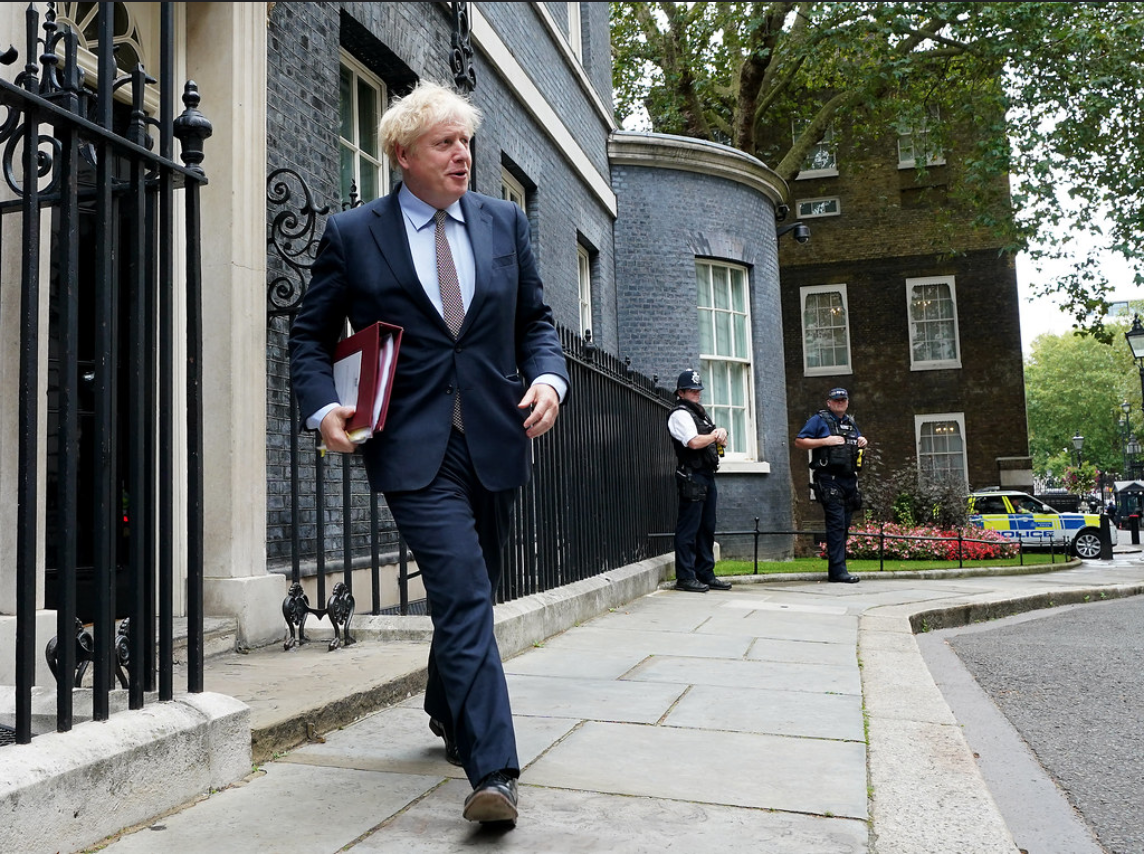Hussein Kassim (University of East Anglia)
As the eighth round of talks commence, the PM’s call at the high-level meeting in June for an intensification of efforts to get talks moving now seem a distant memory. Even before the bruhaha caused by the reading of the UK Internal Market Bill in the House of Commons, progress in the negotiation on the future relationship between the EU and UK had stumbled on the level playing field — specifically state aid — and fisheries. The EU is emphasizing discussion on these two issues need to be advanced, not least to balance the progress made in the areas that the UK favours.
The UK Internal Market Bill has done little to resolve the impasse. Although a UK government minister conceded that the text presented in Parliament today does involve a ‘specific’ and ‘limited’ breach of international law, the UK has denied that it is re-considering its commitment to the Withdrawal Agreement and specifically the Irish Protocol. In the background, however, there are mutterings that the Withdrawal Agreement was signed in haste and under pressure, and that it fails to respect the UK’s sovereign status. Commentators have noted that the PM himself signed the agreement less than a year ago and decided that three days was enough for Parliament to scrutinise the text.
If the government had intended to mobilise pro-Brexit support, it has probably succeeded. However, it has also aroused alarm in Dublin, caused suspicion in Brussels, and created concern, in national capitals across the EU.
First, the EU made it clear throughout the Article 50 negotiations that a trade agreement would depend upon the UK’s full implementation of the commitments to which it had signed up. The idea that London has only just woken up to the practical implications of the Withdrawal Agreement for the Irish border and for the movement of goods between Northern Ireland and Great Britain is somewhat far-fetched. The fact that the UK could not leave the EU customs union and the EU internal market and have both no border controls between Northern Ireland and Ireland, as the Good Friday Agreement requires, and no border between Northern Ireland and GB, which unionists and other demand, has been presented in the form of a trilemma since at least 2017.
Second, the political leaders of the EU27 have been quick to come to the support of Michel Barnier, who has yet again been in the crosshairs of pro-Brexiters. As well as failing to understand Barnier’s status and that his negotiating mandate guidelines were drawn up and agreed by the political leaders of the EU27, calls to have Barnier removed are at odds with the high regard, respect and trust that he commands in national capitals. The criticism also neglects the fact that the political leaders are very happy to have delegated responsibility for negotiating with the UK to Barnier. Not only do they have other priorities, but although they regret the UK’s departure, they want it to be managed in an orderly fashion, and do not want to be repeatedly called back in.
Third, the EU interprets these actions by the UK government, together with other initiatives, including a meeting with ministers from five member states hosted by Home Secretary Priti Patel to discuss internal security, as part of an attempt by the UK to give it greater leverage in the negotiations. The UK had always opposed the EU’s insistence that an agreement on ‘divorce’ issues (citizens’ rights, settling the UK’s financial liabilities, and the Irish border) should precede negotiations on a trade agreement. The latest moves by the UK are seen as an attempt to put everything back on the table and to use the Irish border as a bargaining chip in the trade talks. If that is indeed the motivation, it is unlikely to succeed.
What then are the prospects for the talks? Although on the EU side, there is scope for compromise on fisheries, the same is not true of the level playing field. State aid is a fundamental issue for the EU. The EU cannot allow access to the internal market for businesses from a third country, especially a neighbouring state with intimate economic ties, without similar controls on anti-competitive practices to those that it imposes. If the UK does not introduce a policy that prohibits state aid, exercises ex ante control on subsidies, and includes a dispute settlement mechanism, the EU will not offer the UK the zero tariff, zero quota access that London is requesting. Indeed, no deal might be preferable to a bad deal in this regard.
On the UK side, much depends on how much is bluster, what the government really wants, and whether it believes its own interpretation of the recent past. Can London afford not to pursue an agreement when the economic effects of the pandemic are about to be break and the supply chains that endured Covid would be cut if there were no deal? Is the UK prepared practically or politically for the end of the transition? Does the UK government believe that tough talking allowed it to renegotiate the Withdrawal Agreement last autumn, rather than the EU’s preference for special arrangements for the Northern Ireland rather than the UK to remain in a customs union? London’s answers to those questions will determine whether the tiger is put in the tank.
Hussein Kassim is Professor in Politics at the University of East Anglia and Visiting Professor at the College of Europe
Image credit: Prime Minister Boris Johnson Leaving for PMQs on 09/09/2020. Picture by Pippa Fowles / No 10 Downing Street, via a CC BY-NC-ND 2.0 licence



